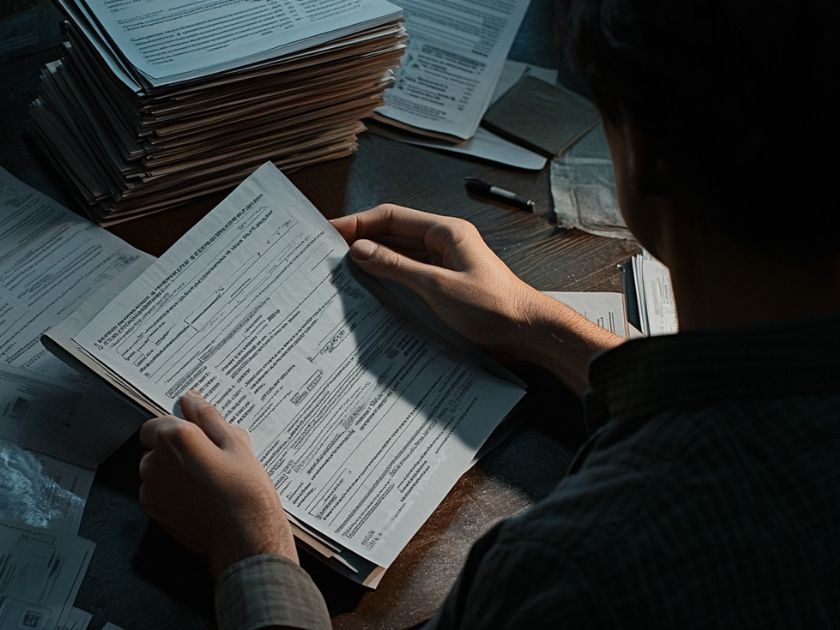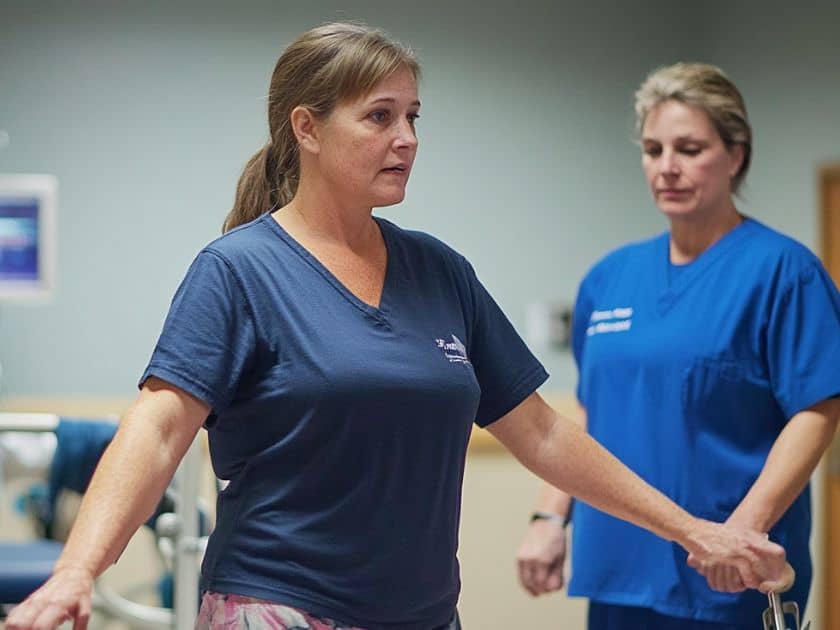Strategies for Maximizing Your Car Accident Settlement Offer
Have you recently been involved in a car accident and find yourself uncertain about how to maximize your settlement offer? Understanding the total value of your injury claim is crucial, especially when dealing with insurance companies. This blog post will discuss effective strategies, such as gathering strong evidence and the importance of seeking continuous medical attention for soft tissue injuries. By following these valuable insights, readers can better navigate the complexities of their car accident injury demand letter and improve their chances of receiving appropriate compensation. Your story matters, and the right knowledge will empower you to communicate your needs effectively.
Key Takeaways
- Understanding recoverable damages is essential for maximizing a car accident settlement.
- Documenting emotional impacts enhances the case for securing adequate compensation.
- Consulting with a knowledgeable attorney significantly increases the potential settlement amount.
- Keep organized records of all medical treatments and evidence related to the accident.
- Avoid admitting fault or downplaying injuries when communicating with insurance adjusters.
Understand the Full Value of Your Claim

To fully understand the value of a claim after a vehicle accident, plaintiffs must consider various aspects of personal injury law. This includes identifying all recoverable damages, calculating immediate and future medical costs, and accounting for lost wages and potential loss of earning capacity. Additionally, factoring in pain, suffering, and emotional distress is crucial, alongside ensuring property damage is not underestimated.
Each of these elements plays a significant role in determining the comprehensive value of a personal injury claim, providing a well-rounded approach to maximizing car accident settlement offers.
Learn About All Recoverable Damages
Recoverable damages after a car accident can encompass a wide range of expenses, and understanding these can significantly impact the total value of a claim. Medical expenses often include costs for surgery, hospitalization, and physical therapy, which can add up quickly. If treatment continues over time, future medical costs must also be taken into account to ensure that the settlement reflects the full extent of recovery needs.
In addition to medical costs, individuals must consider lost wages due to missed work during recovery. This includes not only the immediate loss of income but also potential future earnings resulting from reduced work capacity. Injuries resulting from accidents can have long-lasting effects on a person’s ability to work, making it essential to negotiate compensation that covers these losses adequately.
Emotional aspects, such as anguish and distress, are also recoverable damages in a personal injury claim. Accidents can lead to long-term psychological effects, which can affect day-to-day life and overall well-being. During negotiations, it is crucial for claimants to present evidence of these emotional struggles alongside physical injuries to achieve a comprehensive understanding of all recoverable damages associated with the accident.
Calculate Immediate and Future Medical Costs
Calculating immediate and future medical costs is critical for car accident victims seeking to understand the full value of their claims. Injuries incurred in a crash often lead to substantial medical expenses, including emergency room visits, surgeries, and rehabilitation. It is vital for claimants to gather all relevant medical bills and records to accurately reflect these costs during settlement negotiations.
Additionally, victims should consider the long-term implications of their injuries. If ongoing treatment, such as physical therapy or medications, is necessary, the total future medical costs must be projected and included in the claim. Ensuring that these expenses receive adequate attention can help maximize the settlement offer by presenting a comprehensive view of the injured party’s medical needs.
Moreover, understanding how comparative negligence may affect compensation is essential. If an accident victim shares some responsibility for the incident, this could influence the final settlement amount. Recognizing the role of comparative negligence allows for a more strategic approach to negotiations, as it highlights the importance of accurately documenting all aspects of medical costs and their impact on recovery.
| Type of Costs | Examples |
|---|---|
| Immediate Medical Costs | Emergency Room Visits, Surgery, Hospitalization |
| Future Medical Costs | Physical Therapy, Medication, Follow-up Appointments |
| Other Considerations | Lost Wages, Emotional Distress, Comparative Negligence |
Include Lost Wages and Loss of Earning Capacity
Including lost wages in a personal injury claim is critical for accident settlements. When injuries from a motor vehicle accident prevent a victim from earning their regular income, this loss must be accurately documented. To support these claims, clear evidence, such as pay stubs, tax returns, and employer statements, may be necessary to establish the full extent of the financial impact caused by the negligence of another party.
In addition to immediate lost wages, loss of earning capacity should also be considered. If an injury results in a long-term disability that limits job performance or career opportunities, the settlement must account for this reduced earning potential. Claimants can work with financial experts who can project future income losses based on current wages and projected career growth opportunities impacted by the injury.
Accurate documentation plays a vital role in emphasizing the importance of including lost wages and earning capacity within the claim. This information provides a comprehensive picture of the financial hardships faced by accident victims, ensuring that negotiations with insurance companies adequately reflect the total damages suffered. A thorough approach helps maximize car accident settlement offers and ensures a fair outcome for individuals dealing with significant, life-altering injuries.
| Type of Income Loss | Examples |
|---|---|
| Immediate Lost Wages | Days off work, Overtime missed |
| Future Earning Capacity | Long-term disability, Reduced job opportunities |
| Supporting Evidence | Pay stubs, Employer letters |
Factor in Pain, Suffering, and Emotional Distress
Factoring in pain, suffering, and emotional distress is essential when assessing the full value of a personal injury claim after an accident. These non-economic damages can significantly increase the total settlement amount. Claimants must clearly articulate their experiences and document how the accident has disrupted their daily lives, highlighting the emotional toll that accompanies physical injuries.
Understanding how claims adjusters evaluate pain and suffering can also strengthen a claimant’s position. Documentation, such as medical records and psychological evaluations, can provide evidence of emotional distress. Including this information helps convey the impact of injuries, especially when negotiating settlements with insurance companies for personal injury protection coverage.
Incorporating this aspect into a claim may enhance the negotiation process. Whether dealing with claims from a car accident or a slip and fall incident, the ability to substantiate claims of pain and suffering with personal evidence is crucial. Establishing a clear connection between the accident and the emotional challenges faced can lead to a more substantial compensation offer for the injured party:
- Document experiences of pain and emotional distress.
- Gather medical records and psychological evaluations.
- Clearly articulate how the accident disrupted daily life.
- Negotiate assertively with claims adjusters.
- Enhance settlement offers by substantiating claims.
Avoid Underestimating Property Damage
After a car accident, it is vital for individuals to accurately assess the property damage incurred as part of their claim. Many may overlook the extent of damage to their vehicle, focusing solely on medical expenses or emotional distress. However, understanding the full scope of property damage is essential in maximizing a settlement offer, especially in cases of significant traffic collisions where repair costs can be substantial.
In addition to the vehicle’s repair costs, claimants should consider the value of any personal property that may have been damaged in the car accident. Items such as electronics or personal belongings can add to the overall value of the claim. Documenting this damage thoroughly and providing all relevant receipts can help substantiate the claim and ensure that nothing is underestimated during negotiations with insurance companies.
Furthermore, failure to accurately account for property damage can lead to lower settlement amounts. For instance, if an accident results in injury, such as a spinal cord injury, the compensation should reflect not only medical costs and chronic pain but also any damages related to the vehicle. Taking a comprehensive approach to evaluating and presenting property damage ensures that individuals receive fair compensation for all areas impacted by the accident.
To unlock the true worth of your claim, you must turn your focus to the evidence. Strong proof not only strengthens your case but also tells your story clearly and powerfully.
Gather and Preserve Strong Evidence

Gathering and preserving strong evidence is crucial for maximizing a car accident settlement offer. Key steps include collecting police reports and official documents, taking detailed photos and videos of the accident scene, and obtaining witness statements along with their contact information. Additionally, keeping organized records of medical treatments and maintaining a personal injury journal can significantly enhance the evaluation of claims. Each of these elements provides essential knowledge for attorney negotiations and potential jury evaluations.
Collect Police Reports and Official Documents
Collecting police reports and official documents is a critical step for accident victims aiming to maximize their car accident settlement offers. These documents provide an objective account of the accident, detailing the circumstances that led to the collision and identifying any parties at fault. Insurance companies heavily rely on these reports when determining liability and evaluating claims, making them essential for accident victims seeking compensation.
Official documentation, such as traffic citations or witness statements included in police reports, can strengthen the case for the victim. By demonstrating clear evidence of fault, these documents can bolster the claim against the at-fault party’s insurance policy. This support is vital, as it provides a solid foundation to negotiate a fair settlement that reflects the extent of the damages incurred.
Additionally, having organized and comprehensive records can alleviate the distress that often accompanies post-accident situations. For accident victims, the ability to present clear documentation not only aids in negotiations with insurance adjusters but also reinforces their position during potential legal disputes. This thorough preparation underlines the importance of each step taken to gather evidence following an accident, ensuring that victims are well-equipped to advocate for their rights and secure just compensation.
Take Detailed Photos and Videos of the Scene
Taking detailed photos and videos of the accident scene is vital for maximizing a car accident settlement offer. These visual records can provide critical evidence that supports a claimant’s position regarding the factors contributing to the accident. An expert’s evaluation of these images can help establish liability, particularly when proving contributory negligence is essential for achieving a favorable outcome in negotiations or at trial.
Accurate documentation through photographs can also illustrate the severity of injuries and suffering experienced by the victims. Capturing images of the vehicle damage, road conditions, and any visible injuries can create a compelling narrative about the events leading to the accident. This evidence not only bolsters a personal injury claim but may also be imperative in wrongful death claims when families seek justice for their loved ones.
Organizing this visual evidence enhances the ability to present a robust case. Clear and concise photos and videos can significantly impact claim evaluations, making them a powerful tool during discussions with insurance companies and legal representatives. The effective use of this evidence can ultimately position claimants for better compensation outcomes while ensuring that all aspects of the incident are accurately represented.
| Types of Evidence | Examples |
|---|---|
| Accident Scene | Photos of vehicle damage, road conditions |
| Injuries | Images of visible injuries, medical evaluations |
| Witness Statements | Contact details, accounts of the incident |
Obtain Witness Statements and Contact Information
Obtaining witness statements and contact information is crucial for maximizing a car accident settlement offer. Witnesses can provide objective accounts of the incident, which are valuable for establishing liability. Their testimonies may also help clarify details regarding property damage and the circumstances leading up to the crash, thereby strengthening the case during negotiations or potential court proceedings.
Witnesses can often recollect aspects of the accident that the involved parties might overlook. Their statements can include observations about the behavior of the drivers or the conditions of the road at the time of the accident. Collecting this information not only alleviates some stress from the claimant but can also enhance the overall credibility of the claim, making it more compelling for insurance adjusters.
It is advisable for individuals involved in a car accident to request that witnesses provide their contact details and written statements as soon as possible. Doing so ensures that important information is preserved before recollections fade over time, which is crucial given the statute of limitations that restricts how long victims have to file a claim. The organized collection of this evidence can make a significant difference when negotiating settlements or pursuing claims in court:
| Type of Evidence | Examples |
|---|---|
| Witness Statements | First-hand accounts of the accident |
| Contact Information | Names, phone numbers, email addresses |
| Location Details | Where the accident occurred |
Keep Organized Records of Medical Treatments
Keeping organized records of medical treatments is essential for maximizing a car accident settlement. Documentation of every medical visit, treatment received, and any associated costs provides critical evidence to support a claim. This helps substantiate the injury’s impact on the victim’s life, serving as a vital component during negotiations with insurance companies.
Accurate records also assist in identifying the specific cause of action related to the injuries sustained in the accident. By meticulously cataloging medical treatments and related expenses, claimants can effectively demonstrate how the injuries directly correlate to the car accident. This clear connection enhances the strength of the case when seeking punitive damages or compensation for medical expenses.
Additionally, organized medical records create a comprehensive narrative of the recovery process, which is imperative for establishing the extent of the injury. It is beneficial to include details like diagnoses, treatment plans, follow-up appointments, and any prescriptions administered. Claimants can strengthen their position by presenting a complete picture that highlights the necessity of continuous care for their injury:
| Type of Treatment | Details |
|---|---|
| Emergency Care | Initial hospital visit and treatment |
| Physical Therapy | Sessions to aid recovery |
| Medications | Prescriptions for pain management |
Maintain a Personal Injury Journal
Maintaining a personal injury journal is an essential tactic for individuals pursuing a car accident lawsuit. This journal serves as a detailed record of the day-to-day impacts of the accident on the claimant’s quality of life. By documenting experiences related to pain and suffering, wage loss, and other consequences, victims can provide concrete evidence of the challenges they face following an accident.
The journal allows individuals to track their emotional and physical states post-accident, creating a narrative that reflects the real-life implications of their injuries. It can help clarify how the accident has altered their ability to perform daily activities, thus emphasizing the risk of long-term effects on their career and personal relationships. Accurately articulating these changes can significantly influence settlement negotiations and outcomes.
Incorporating detailed descriptions of medical appointments and treatments in the journal reinforces the ongoing nature of the injury. This documentation not only highlights the immediate consequences but also serves to substantiate claims for future damages. Keeping organized notes may be invaluable during the negotiation process to ensure that all aspects of the injury are considered, validating the total compensation sought:
- Document daily experiences and emotional impacts.
- Record medical appointments and treatment details.
- Highlight changes in quality of life and wage loss.
Once the evidence is secure, the next step is critical. Seeking prompt and continuous medical attention will not only aid in recovery but also support your case.
Seek Prompt and Continuous Medical Attention

Seeking prompt and continuous medical attention is vital for individuals navigating a car accident case. Getting evaluated, even for minor injuries, and adhering to recommended treatment plans are crucial to establish a strong medical history. Regularly attending appointments without gaps and documenting symptoms over time can enhance the claim’s credibility and ensure comprehensive compensation from auto insurance. Consulting specialists when necessary further solidifies the connection between injuries and the accident, potentially impacting claims related to property and loss of consortium.
Get Evaluated Even if Injuries Seem Minor
Getting evaluated for injuries after a car accident, even if they seem minor, is critical. Many individuals downplay minor aches or pains and may choose to forego a medical assessment. This strategy, however, can lead to complications later on, especially if the injuries progress and become more severe, potentially resulting in significant car accident damages. Early evaluations can lead to proper treatment plans, including medication or therapy, which can mitigate long-term issues.
Additionally, obtaining a professional evaluation creates an official medical record, which is essential when negotiating with insurance companies. Insurance adjusters often scrutinize claims and may dismiss symptoms that aren’t recorded immediately after the accident. Claimants who seek medical attention promptly are better positioned to hold negligent parties accountable and secure higher settlements for pain, suffering, and even disfigurement, if applicable.
For those navigating the complexities of a personal injury claim, having a knowledgeable lawyer is invaluable. A lawyer can guide individuals in understanding the importance of documenting even minor injuries and how this impacts their ability to recover. By strategically managing medical evaluations and treatment, individuals increase their chances of receiving fair compensation for all accident-related damages:
- Seek medical attention regardless of injury severity.
- Document all evaluations and treatments to build a strong case.
- Consult with a lawyer to understand the implications of your injuries.
Follow All Recommended Treatment Plans
Following all recommended treatment plans after a car accident is crucial for individuals suffering from accident injuries. Consistently attending medical appointments not only aids in recovery but also creates an official record of the injuries. This documentation is essential for personal injury cases, as insurance companies often scrutinize treatment adherence when evaluating car accident claims.
By adhering to prescribed treatment plans, victims establish a clear connection between their accident injuries and ongoing medical needs. For instance, someone recovering from a spinal cord injury requires regular therapy and monitoring to address their condition effectively. Documenting these treatments can support claims and enhance negotiation positions against insurance companies, ensuring that all damages are recognized.
Additionally, maintaining continuous communication with healthcare providers fosters a comprehensive understanding of the recovery process. Patients should take proactive steps by discussing any changes or challenges in their treatment. This engagement helps to reinforce their case, illustrating to the insurance company that they are committed to managing their accident injuries responsibly:
| Type of Treatment | Details |
|---|---|
| Physical Therapy | Essential for recovery and rehabilitation |
| Follow-up Appointments | Monitoring progress and adjusting treatments |
| Medication Management | Addressing pain and facilitating recovery |
Attend All Medical Appointments Without Gaps
Attending all medical appointments without gaps is essential for individuals pursuing an accident settlement after a vehicle collision. Consistent follow-up care not only aids in recovery but also creates a robust medical record that substantiates the claims made in a lawsuit. Insurance companies often scrutinize treatment history, and any missed appointments can be interpreted as a lack of seriousness regarding injuries, potentially undermining the value of damages sought.
By maintaining a regular schedule of visits, including therapy sessions and check-ups, individuals demonstrate their commitment to recovery. This record of active engagement with medical professionals reinforces the connection between the injuries sustained in the accident and ongoing treatment needs. Consequently, a comprehensive medical history aids in ensuring that the final settlement reflects all incurred damages and future medical expenses associated with the injury.
Moreover, attending appointments helps to comply with the statute of limitations, which can restrict the time available to file a claim. Gaps in medical treatment may not only jeopardize recovery but also impact the potential to receive full compensation for damages. By prioritizing medical appointments, individuals position themselves favorably during settlement negotiations and ensure all aspects of their rehabilitation are accounted for in the final claim.
Document Symptoms and Changes Over Time
Documenting symptoms and changes over time is vital for individuals navigating car accident insurance claims. Accurate records of physical and emotional changes after an accident provide essential evidence that can substantiate a claim, helping to illustrate the ongoing effects of injuries. Keeping a detailed account of daily experiences allows claimants to communicate the full impact of the accident during settlement negotiations.
In addition to physical symptoms, individuals should document emotional changes. Persistent pain, mood swings, or anxiety can significantly affect daily life and future earning potential. By presenting this information, victims can better demonstrate the non-economic damages they have faced, which are critical components in maximizing a car accident settlement offer.
Individuals can streamline this documentation process by maintaining a consistent personal injury journal. This journal serves as a centralized location for noting changes in symptoms, treatment schedules, and overall health status. Ultimately, a well-maintained record enables claimants to present their case effectively, increasing their chances of securing a fair settlement from car accident insurance providers:
| Type of Documentation | Details |
|---|---|
| Symptom Tracking | Daily pain levels, emotional state changes |
| Treatment Records | Visits, treatments received, medication prescribed |
| Impact on Daily Life | Changes in work capacity, personal relationships |
Consult Specialists if Necessary
Consulting specialists is often essential for individuals recovering from car accident injuries. Injuries such as fractures, neck pain, or concussions may require the expertise of orthopedic surgeons, neurologists, or physical therapists who can provide a targeted treatment plan. Seeking specialized care ensures that victims receive the most appropriate and effective treatments to facilitate their recovery.
Furthermore, specialist evaluations establish a comprehensive medical history that is crucial during insurance negotiations. Documentation from specialists can provide detailed insights into the severity and long-term implications of injuries, enhancing the strength of a personal injury claim. This type of information is valuable as it clearly illustrates how accidents have physically and emotionally impacted the victim.
Ultimately, the decision to consult specialists reinforces a claimant’s commitment to their recovery and substantiates their case for maximum compensation. Neglecting to seek specialized medical attention can weaken a claim, as insurance companies may question the severity of injuries. Therefore, taking proactive steps toward comprehensive care can lead to a more favorable settlement offer:
- Identify specific injuries needing expert review.
- Gather detailed documentation from specialist consultations.
- Communicate ongoing needs for treatment to reinforce claims.
Medical attention is vital. After treatment, the next crucial step is understanding how to deal with insurance adjusters, who often hold the keys to your compensation.
Communicate Carefully With Insurance Adjusters

Communicating carefully with insurance adjusters is essential for maximizing a car accident settlement offer. Claimants should know their rights before discussing claims with insurers, avoiding recorded statements that could be detrimental. Additionally, they must refrain from admitting fault or downplaying injuries while being cautious with social media posts. Engaging an attorney to handle negotiations can significantly bolster the likelihood of securing a favorable outcome.
Know Your Rights Before Speaking to Insurers
Before engaging with insurance adjusters, accident victims should understand their rights and the claims process. Knowing rights empowers individuals to protect themselves from potential manipulation by insurance companies, who often aim to minimize payouts. For instance, victims should be aware that they are not obligated to accept the first settlement offer and have the right to negotiate for a fair compensation amount.
Insurance adjusters may use various tactics to undermine a claimant’s position, citing recorded statements or information that could be used against them. Therefore, accident victims should refrain from making any admissions of fault during discussions, as this can severely impact their claims. It is crucial for individuals to consult with a knowledgeable attorney prior to speaking with insurers to strengthen their negotiating power and clarify their rights.
Understanding the full scope of rights helps individuals approach negotiations from a position of strength. They possess the right to seek legal representation and should feel encouraged to involve an attorney who specializes in personal injury claims. An experienced lawyer can provide guidance on coordinating communication with insurance adjusters, ensuring that all interactions align with the claimant’s best interests while working towards maximizing the car accident settlement offer.
Avoid Providing Recorded Statements
Accident victims should exercise caution when it comes to providing recorded statements to insurance adjusters. These statements can be used against the claimant during negotiations, potentially undermining their case. By speaking without preparation or guidance, individuals may unintentionally divulge information that could be interpreted to their disadvantage, thereby jeopardizing the full value of their car accident settlement offer.
Insurance adjusters are trained to extract statements that may limit their liability and reduce payouts for claims. A recorded statement may lead to misunderstandings regarding the circumstances surrounding the accident or the extent of injuries sustained. As a result, those injured in car accidents should be strategically careful, ensuring they have legal representation before engaging in discussions about the case.
Consulting a personal injury lawyer before providing any recorded statement helps ensure that claimants understand the implications of their words. A knowledgeable attorney can offer guidance on how to approach discussions with insurers, keeping the focus on protecting the individual’s rights. By prioritizing legal consultation, accident victims can navigate the complexities of insurance communication and safeguard their chances of a favorable settlement outcome.
Do Not Admit Fault or Downplay Injuries
Accident victims must be cautious not to admit fault during communications with insurance adjusters. Admitting fault, even partially, can significantly weaken a claimant’s position in negotiations. This may lead to a reduction in the settlement amount or an outright denial of the claim, making it essential to stick to the facts without assigning blame.
Moreover, downplaying injuries is a common mistake that individuals make when discussing their cases. It is vital for claimants to clearly articulate the significant impact of their injuries, both physically and emotionally. Presenting injuries as serious and well-documented ensures that they receive the compensation they deserve for pain, suffering, and ongoing medical expenses.
To navigate interactions with insurance adjusters effectively, claimants should consider the following strategies:
- Remain factual and avoid emotional responses.
- Consult an attorney before discussions with insurance companies.
- Document all injuries thoroughly and convey their severity.
Be Cautious With Social Media Posts
Claimants must exercise caution with social media posts following a car accident, as these platforms can inadvertently affect the outcome of their settlement negotiations. Insurers often monitor social media for information that may contradict a claimant’s narrative about their injuries or emotional distress. Even seemingly innocent posts about daily activities can be construed as evidence that downplays the severity of injuries sustained in the accident.
It is essential for individuals involved in a personal injury claim to maintain privacy on social networks. This includes adjusting privacy settings to limit access to posts and being mindful of interactions that involve sharing information about the accident or recovery. By taking these precautionary steps, claimants can protect their case and prevent any potentially damaging evidence from surfacing during the claims process.
Ultimately, the best approach is to avoid discussing the accident and related injuries online altogether. Clients should focus on their recovery and let their attorney handle communication with insurers. This strategy not only helps safeguard one’s claim but also allows individuals to concentrate on what truly matters: healing from their injuries and rebuilding their lives:
- Be cautious with social media interactions.
- Limit access to posts regarding injuries or emotional state.
- Prioritize privacy settings to protect personal information.
- Avoid discussing the accident or recovery online.
- Focus on healing while letting an attorney manage communication.
Let Your Attorney Handle Negotiations
Engaging a skilled attorney to handle negotiations with insurance adjusters is essential for maximizing a car accident settlement offer. Attorneys possess in-depth knowledge of personal injury law and understand the tactics that insurance companies often employ to diminish claims. By leveraging their expertise, victims can focus on recovery while ensuring that their best interests are represented professionally and assertively.
A lawyer’s experience in negotiating settlements enables them to accurately assess the full value of a claim. With a comprehensive understanding of recoverable damages, attorneys can present compelling arguments that underscore the extent of the victim’s injuries and losses. This strategic approach enhances the likelihood of a favorable settlement that truly reflects the emotional, physical, and financial toll incurred by the accident.
Additionally, having an attorney manage negotiations minimizes the stress and pressure that often accompany discussions with insurance companies. Attorneys can handle complex communication, navigate legal jargon, and address any counteroffers professionally. By allowing an attorney to take the lead, victims ensure that they are not rushed into an agreement that undervalues their claim, ultimately paving the way for a just resolution that aligns with their needs.
Insurance adjusters often twist words to save money. It’s crucial to document every loss, so your true situation is clear and undeniable.
Document All Financial and Personal Losses

Documenting all financial and personal losses is essential for maximizing a car accident settlement offer. Keeping receipts for out-of-pocket expenses, tracking mileage for medical visits, and recording time off work and lost income helps paint a complete picture of the impact of the accident. Additionally, noting emotional and psychological impacts, as well as saving bills related to property repairs, can further strengthen the claim.
Each of these components provides crucial evidence that supports the claim, ensuring that all losses are accurately represented during negotiations with insurance companies.
Keep Receipts for Out-of-Pocket Expenses
Keeping receipts for out-of-pocket expenses is a fundamental step in documenting losses following a car accident. This includes expenses not covered by insurance, such as transportation costs for medical appointments, pharmacy bills for medications, and even costs for necessary home modifications due to injuries. By retaining these receipts, claimants can effectively demonstrate the financial impact of the accident, making a compelling case for their settlement.
In addition to direct medical expenses, individuals should also consider incidental costs incurred during recovery. This might involve expenses like parking fees at medical facilities or increased utility bills due to the need for more heating or cooling during rehabilitation. Comprehensive documentation of all such expenses can significantly enhance the total value of a personal injury claim, ensuring that no financial burden goes unrecognized.
Claimants should organize these receipts systematically to present a clear picture of their financial challenges. Creating a dedicated folder or digital file for all receipts will aid in preparation for discussions with insurance adjusters. When negotiating for a fair settlement, providing thorough evidence of out-of-pocket expenses reinforces the argument for appropriate compensation. This systematic approach can ultimately help victims recover their entitled damages efficiently:
- Collect receipts for transportation and pharmacy costs.
- Document any incidental expenses related to recovery.
- Organize receipts for easy access during negotiations.
Track Mileage for Medical Visits
Tracking mileage for medical visits is a critical component in documenting financial losses after a car accident. Claimants should maintain an accurate log of all trips taken to healthcare providers related to their injuries, which can significantly contribute to the overall settlement compensation. This record serves as evidence of the added costs incurred due to the accident, underscoring the financial impact on the victim’s life.
To effectively track mileage, individuals should note the date, destination, and purpose of each trip, along with the total miles traveled. This systematic approach makes it easier to present comprehensive documentation during settlement negotiations. Insurance adjusters appreciate these details, as they clearly illustrate how injuries have led to increased travel costs, which should be included in the compensation package.
Moreover, victims can utilize various tools such as mileage tracking apps or simple spreadsheets to simplify the process. By keeping meticulous records, claimants can confidently assert their right to recover funds for travel expenses associated with medical appointments. This clarity and organization not only streamline negotiations but also provide a stronger foundation for a successful personal injury claim.
Record Time Off Work and Lost Income
Recording time off work and lost income is essential for individuals navigating personal injury claims after a car accident. Accidents often result in varying degrees of missed workdays, and claimants should meticulously document these absences to establish their overall financial losses. Keeping thorough records, such as employer letters or time-off requests, can significantly bolster their case for compensation.
In addition to immediate lost wages, individuals should also consider the long-term impact of their injuries on earning potential. Injuries may hinder career advancement or lead to reduced work hours, emphasizing the importance of tracking not only the time lost but also any future earnings that may be affected. Engaging with financial experts to project these potential losses can provide a clearer picture of total damages when pursuing a settlement.
Claimants must present a comprehensive account of their absence from work and related lost income to ensure their claims fully reflect their hardships. This documentation strengthens their position during negotiations with insurance companies, helping substantiate claims for lost wages. By covering all aspects of earnings affected by the accident, including current and future loss of income, individuals can effectively pursue the full compensation they deserve:
- Document all days absent from work due to injury.
- Track changes in job performance or future earning capacity.
- Gather supporting evidence like pay stubs and employer statements.
Note Emotional and Psychological Impacts
Noting emotional and psychological impacts is essential when documenting financial and personal losses after a car accident. Individuals often experience anxiety, depression, and emotional distress as a direct result of their injuries, which can significantly affect their quality of life. Recognizing these emotional challenges not only highlights the broader consequences of the accident but also serves as compelling evidence when negotiating a car accident settlement offer.
Claimants should maintain a detailed record of their emotional experiences following the accident. This may include documenting feelings of sadness, anger, or anxiety, as well as how these emotions impact daily activities and relationships. Keeping this detailed account can be instrumental in conveying the full extent of suffering endured, ultimately supporting claims for non-economic damages in a personal injury case.
Additionally, incorporating observations from mental health professionals can strengthen the case for compensation related to emotional impacts. Therapy sessions or evaluations that detail the psychological effects of the accident can serve as vital documentation for personal injury claims. By presenting this evidence, claimants can enhance their position, ensuring they receive the compensation they rightfully deserve:
| Type of Emotional Impact | Examples |
|---|---|
| Anxiety | Increased apprehension about driving or traveling |
| Depression | Lack of interest in previously enjoyed activities |
| Emotional Distress | Difficulty maintaining personal relationships, mood swings |
Save Bills Related to Property Repairs
Saving bills related to property repairs is crucial for individuals involved in a car accident. This documentation provides tangible proof of the financial impacts resulting from damage to vehicles or personal property. By maintaining a thorough record of these expenses, claimants can ensure that all relevant losses are accounted for in settlement negotiations, thus maximizing their compensation.
Claimants should carefully track all invoices and receipts related to vehicle repairs, including labor costs and parts purchased. These documents serve as essential evidence when presenting claims to insurance companies, reinforcing the need for reimbursement for losses incurred. Not only do these bills substantiate financial demands, but they also highlight the total cost of the accident beyond just medical injuries.
Moreover, individuals should also keep records of any personal property that may have been damaged during the accident, such as electronics or personal items inside the vehicle. By including these details in their claims, they can further strengthen their case for a fair settlement. Comprehensive documentation encompassing both vehicle and personal property repairs plays a vital role in ensuring that all costs are effectively presented and justified during the claims process.
As the pain of losses sets in, the next step is clear. Seeking the guidance of an experienced car accident attorney can make all the difference in reclaiming what is rightfully yours.
Consult an Experienced Car Accident Attorney

Consulting an experienced car accident attorney is vital for maximizing a car accident settlement offer. Legal representation provides essential insights into how attorneys help navigate the complexities of personal injury cases. Their professional negotiation skills can increase potential settlement amounts while ensuring individuals receive guidance through legal processes. Furthermore, attorneys protect clients’ rights against insurance companies, making their involvement crucial in achieving a favorable outcome.
Understand How Legal Representation Helps
Having legal representation is crucial for individuals involved in car accident claims, as experienced attorneys navigate the complexities of personal injury law with expertise. They can clarify legal terms and processes, ensuring that victims fully understand their rights and options. This guidance empowers clients to make informed decisions regarding their cases, ultimately leading to more favorable outcomes.
Attorneys possess negotiation skills that are instrumental when dealing with insurance companies, who often aim to minimize payouts. They advocate for the client’s best interests, presenting well-documented claims that reflect the full value of medical expenses, lost wages, and emotional distress. By leveraging their experience, attorneys can substantially increase the potential settlement amounts received by accident victims.
In addition to strengthening a client’s settlement position, legal representation also provides peace of mind during a challenging time. Attorneys handle communications and negotiations with insurers, allowing clients to focus on their recovery rather than on the stress of legal battles. This support is invaluable, particularly for individuals dealing with significant injuries and the accompanying emotional toll.
Benefit From Professional Negotiation Skills
Professional negotiation skills are essential when navigating the complexities of a car accident settlement. Attorneys bring a wealth of experience to the negotiating table, allowing them to leverage their understanding of personal injury law to secure better outcomes for their clients. By effectively communicating the extent of damages and the emotional impacts of injuries, an attorney can convince insurance companies to present fair settlement offers that reflect the true costs incurred.
Moreover, experienced attorneys recognize the tactics commonly used by insurance adjusters to minimize payouts. They are equipped to counter these strategies, ensuring that their clients do not settle for less than they deserve. For example, an attorney can anticipate low initial offers and provide a comprehensive evaluation of damages, illustrating the full scope of medical expenses, lost wages, and emotional distress, which enhances the chances of achieving a more favorable settlement.
Ultimately, the role of an attorney in negotiations not only fosters a more assertive approach but also alleviates the stress often associated with personal injury claims. Clients can focus on their recovery while knowing that a skilled professional is advocating for their rights. This assurance of strong representation positions individuals to maximize their car accident settlement offers effectively.
Increase the Potential Settlement Amount
Engaging an experienced car accident attorney significantly increases the potential settlement amount for victims. Attorneys possess in-depth knowledge of personal injury law and understand the nuances of negotiating with insurance companies. Their expertise enables them to present compelling arguments and comprehensive evidence, highlighting all aspects of damages, including medical expenses, lost wages, and emotional suffering.
Additionally, seasoned attorneys often anticipate and counter strategies used by insurance adjusters to minimize payouts. By effectively addressing potential weak points in the case and leveraging their negotiation skills, they can secure more favorable settlement offers. This proactive approach not only strengthens the victim’s position but also fosters a sense of confidence that their rights are being effectively protected.
Moreover, having a skilled attorney allows victims to focus on their recovery rather than the complexities of the claims process. The support and guidance provided by legal representation can alleviate stress, ensuring that the injured party receives personalized care during a challenging time. As a result, individuals are better positioned to seek the compensation they truly deserve for their losses, maximizing the overall settlement amount.
Receive Guidance Through Legal Processes
Consulting an experienced car accident attorney can provide individuals with invaluable guidance through the legal processes involved in personal injury claims. Attorneys can assist clients in navigating the complex legal landscape, ensuring that they understand their rights and options after an accident. This knowledge empowers victims to make informed decisions, ultimately leading to more favorable outcomes in seeking compensation.
A skilled attorney can help victims gather and organize essential evidence that supports their claims. By guiding clients on which documents and information are necessary, attorneys ensure that all relevant details are presented effectively during negotiations with insurance companies. This thorough preparation is critical in demonstrating the full extent of damages sustained, thereby maximizing the settlement offer.
Additionally, having legal representation alleviates much of the stress associated with managing a car accident claim. Attorneys can handle communications with insurance adjusters, allowing clients to focus on their recovery rather than on complex legal matters. This support not only simplifies the process but also instills confidence in victims, knowing that a knowledgeable advocate is working diligently to secure the compensation they deserve.
Protect Your Rights Against Insurance Companies
Protecting rights against insurance companies is paramount in the aftermath of a car accident. Insurance adjusters often aim to minimize payouts, which can leave victims with compensation that does not accurately reflect their losses. An experienced car accident attorney is adept at navigating these challenges and ensuring that victims do not settle for less than they deserve.
Insurance companies may employ tactics designed to confuse or pressure claimants into quick settlements. An attorney’s involvement ensures that clients are aware of their rights and the potential outcomes of their cases. This knowledge is crucial for victims, as it empowers them to resist lowball offers and to engage in negotiations that fully address their medical costs, lost wages, and emotional impacts.
Furthermore, having legal representation creates leverage during negotiations. Attorneys can present well-documented claims that detail all aspects of damages, making it harder for insurers to dispute the validity of a claim. By effectively advocating for their clients, attorneys help secure settlements that honor the true extent of injuries sustained, thereby fostering a more just resolution in personal injury cases.
What You Need To Remember
Understanding the strategies for maximizing a car accident settlement offer is crucial for anyone navigating the aftermath of a vehicle collision. By thoroughly documenting all financial and personal losses, gathering strong evidence, and seeking professional legal representation, individuals can significantly enhance their claims. Knowledge of the various types of recoverable damages and the importance of clear communication with insurance adjusters empowers claimants to advocate effectively for their rights. Ultimately, employing these strategies not only increases the potential settlement amount but also ensures that victims receive the compensation they deserve for their losses.


